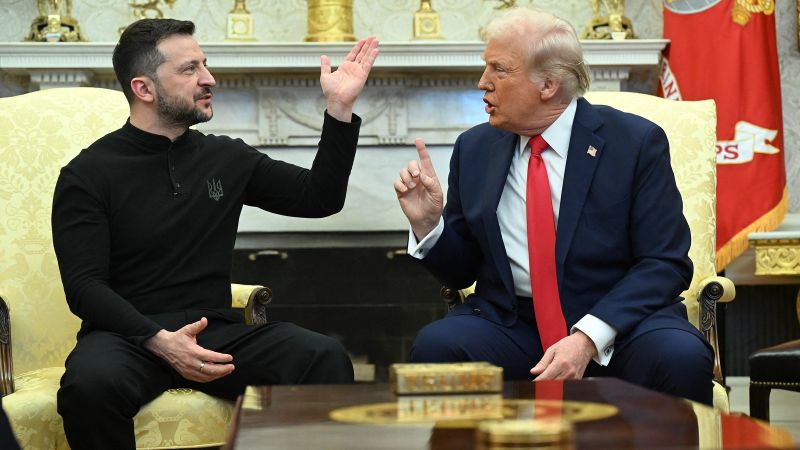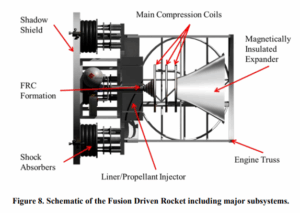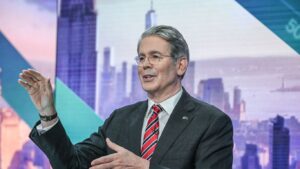
Foreign leaders’ visits to the White House have traditionally been opportunities for diplomacy, camaraderie, and carefully staged photo opportunities. However, President Donald Trump’s recent interactions, notably with Ukraine’s President Volodymyr Zelensky, have disrupted these norms, causing unease among international dignitaries.
In February, during a public meeting, Trump criticized Zelensky for not showing enough gratitude, with Vice President JD Vance echoing his sentiments in front of the global media. As Zelensky sought more support in Ukraine’s conflict with Russia, Trump threatened to abandon Ukraine altogether, transforming the meeting into a heated confrontation. This incident, along with Trump’s unfounded genocide accusations against South African President Cyril Ramaphosa and tense exchanges with Canadian Prime Minister Mark Carney, signals a shift in how foreign leaders need to prepare for Oval Office meetings during Trump’s second term.
Diplomatic Jiu Jitsu: Navigating Trump’s White House
Five former senior diplomats, experienced in orchestrating such high-stakes meetings, compare the current White House atmosphere to a boxing ring or television set. They advise that leaders must now brace for a form of diplomatic “jiu jitsu,” trolling, or even “North Korean” style adulation. “You never contradict Trump publicly, because he will lose face and that’s something that he can’t accept,” explained Gérard Araud, France’s former ambassador to the US during Trump’s first presidency.
Even Israeli Prime Minister Benjamin Netanyahu, who shares a close relationship with Trump, is reportedly cautious ahead of his upcoming White House visit. After Trump expressed intentions to be “very firm” on a Gaza ceasefire, Israel quickly accepted a 60-day ceasefire proposal, indicating a strategic move to avoid confrontation.
Trump 2.0: A New Diplomatic Landscape
For Lithuania’s former foreign minister, Gabrielius Landsbergis, these meetings are opportunities for Trump to assert his dominance. “This is a show,” he remarked, highlighting Trump’s penchant for theatrics. Trump’s own comments during the Zelensky meeting, “This is going to be great television,” underscore his approach.
Arturo Sarukhán, Mexico’s former ambassador to Washington, described these encounters as “diplomatic vandalism and trolling.” According to Joe Hockey, Australia’s former ambassador to the US, Trump has evolved since his first term, becoming “far more overtly transactional” and a “formidable negotiator.” This transformation has left European leaders, in particular, in a state of denial and panic.
A Departure from Tradition
The Oval Office, adorned with gold details, now reflects Trump’s unique vision of American history. Unlike previous administrations, Trump’s White House operates more like a royal court, where personal access to Trump or his family is crucial for advancing any agenda. Araud noted, “During past administrations, there were rules,” emphasizing that meetings were once opportunities for mutual respect and diplomacy.
Rufus Gifford, former US ambassador to Denmark and chief of diplomatic protocol under President Joe Biden, stressed the importance of using these meetings to build personal connections. “This should be a nice meeting where you get to know each other as human beings,” he advised.
Advice for Future Meetings
Experts suggest that foreign leaders should approach meetings with Trump as television performances. Landsbergis emphasized the importance of considering public perception back home, while Sarukhán recommended demonstrating diplomatic agility. “They should not have an expectation that it’s going to go smoothly,” warned Gifford, who also worked on Kamala Harris’ campaign.
Physical encounters, such as aggressive handshakes, have become symbolic of Trump’s approach. Araud recounted warning French President Emmanuel Macron about Trump’s “brutal” handshake, advising readiness to resist. Araud now counsels subordination, suggesting leaders should express gratitude and allow Trump to dominate conversations.
The Risk and Reward of Oval Office Visits
Despite the challenges, some leaders believe the potential benefits of an Oval Office visit outweigh the risks. Landsbergis noted that for smaller nations like Lithuania, these meetings are vital for conveying urgent messages directly to Trump. However, navigating the unpredictable nature of these encounters requires treating Trump like “a whimsical and unpredictable child,” Araud remarked.
Ultimately, Trump’s approach to diplomacy marks a significant departure from the past, reshaping how foreign leaders engage with the United States. As Trump continues to redefine the norms of international relations, leaders must adapt to a new era of diplomacy characterized by unpredictability and spectacle.







